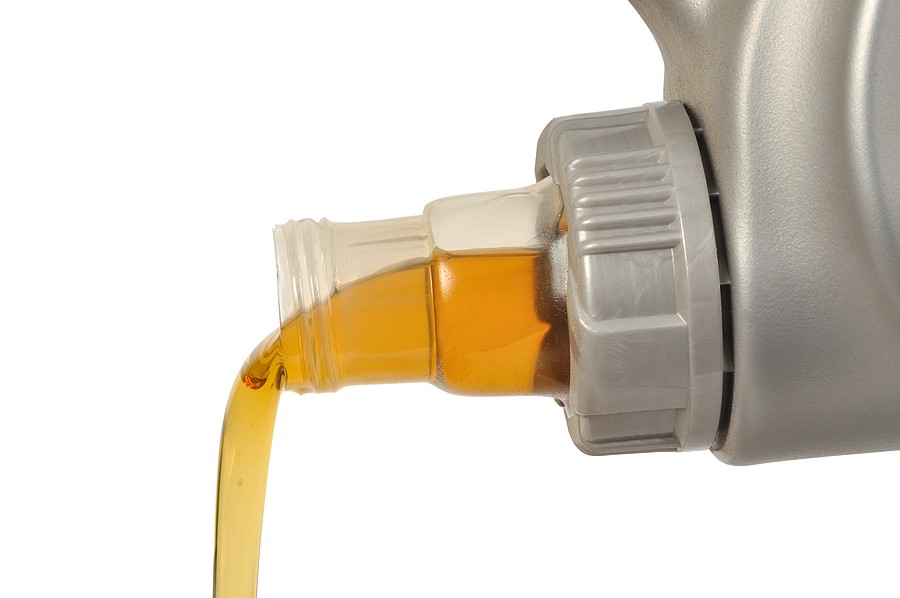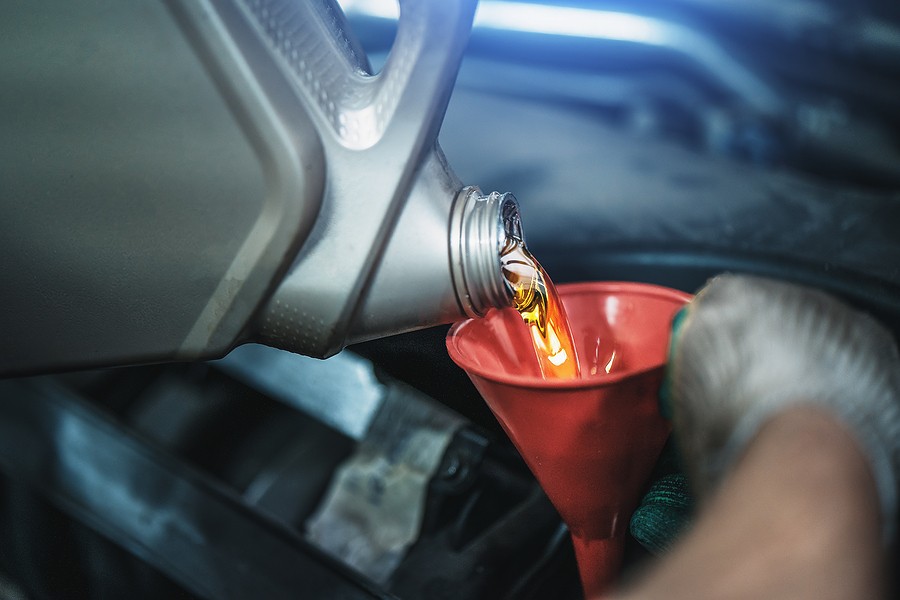If you're asking yourself, “what engine oil does your car need” follow the recommendations in your vehicle's owner's manual and look for the viscosity rating that your manufacturer requires.
Your engine oil is one of the most important fluids in your vehicle. Without this oil, your engine can run through many problems, including overheating and self-destruction.
You need to choose the right engine oil to help your engine operate properly and prevent potential negative consequences.
Unfortunately, the market is filled with tons of examples of engine oils, and it can be challenging for inexperienced drivers to select the right one.
This article will provide you with all you need to know to help answer the question, what engine oil does your car need?

What is the engine oil, and what does it do?
Before we dig into the details about the different motor oils you have to select, we must understand the main role of engine oil in our vehicles.
Your engine has many internal interacting components in any vehicle equipped with the conversion system. Unfortunately, these components interact in a way that creates a lot of friction and therefore leads to significant access temperature.
The engine oil is responsible for handling any accident pressure and preventing the engine from overheating due to internal friction. Think about the engine oil as a lubricating material that prevents any internal friction and maintains engine temperature within an optimum range that does not cause any destruction.
Not that you cannot live with the same motor oil forever. In other words, your engine oil must be changed frequently depending on the type of this oil and your vehicle side, along with the recommendations from your vehicle's owner's manual.
What engine oil does your car need?
One of the many questions we received from our readers is what engine oil does your car need? Unfortunately, there is no straightforward answer to this question because it depends heavily on your legal type.
The safest answer is to look at the labels on your vehicle. In other words, your vehicle owner's manual should recommend what type of oil you should choose. Typically, you should focus on its characteristic known as viscosity which tells how easy this oil flows and how thick it is. The viscosity has to do with the temperature, so depending on what oil viscosity your vehicle's owner's manual recommends, this oil operates differently when it's extremely hot outside or very cold.
There are many examples of oil viscosity that you might come across in security; for example, you might see the SAE 5W-30 and the SAE 10W-30. Note that the number is lower indicates that the oil is thinner.
What does the letter “W” mean in the oil number?
It's important when you read the oil number to pay close attention to the letter W. Sometimes, people think that this letter means weight, but it indicates the winter temperature. So people think that when they see a lot of W, this oil is multi-weight, which is incorrect.

What are the different types of engine oil?
While your vehicle owner's manual should have recommendations about the minimum viscosity or the recommended viscosity you have to have in your motor oil, there are different types of oil within the same viscosity that you can choose from.
In other words, you can still maintain the viscosity and achieve the recommendations by the manual while getting more benefits from other types of oils that provide you with long-time service. You don't have to change it frequently.
Typically, and the world of engine oil, you will come across the following:
1. Conventional engine oil
The first and most common type of motor oil you will encounter is conventional engine oil. This essential oil gives your vehicle the minimum characteristics and should have all the viscosity you are looking for. It is very affordable, which means that every driver should be able to use this type of oil,
On the other hand, despite the many benefits, you'll get from this oil, this oil does not last for a long time. In other words, you'll have to change this oil frequently, and if you hate to stay on the line at we kind of chop, you might want to upgrade to a different oil that does not require these frequent changes.
2. High mileage engine oil
A specific type of motor oil is designed for high mileage vehicles or any vehicle above 75,000 miles. This motor oil protects the engine and gives it additional strength to serve you longer without causing major problems.
Once your vehicle hits 75,000 miles, major problems are expected to happen and that's where your engine will lead the maximum protection to operate properly and prevent significant failures and excess wear.
Keep in mind that high mileage oil is going to do whatever it can to protect it and but if you haven't been taking good care of your vehicle previously, the high mileage oil is not going to make a huge difference, and it all depends on how much you take care of your car.
The next thing about high mileage oil is that you can formulate it in many different oils. So, for example, you can have it formulated in conventional or synthetic or probably full synthetic oil.
3. Synthetic engine oil
Synthetic engine oil is the highest quality type of motor oil you will come across in the world of motor oil. It has significant benefits to protect your engine for everyone's time without needing to change it much. It is designed from a specific material that does not normally break down, allowing you to use the same oil for a very long time without needing to change it.
The biggest drawback and challenge of synthetic engine oil is that it's not cheap. When you compare it to conventional oil, it is a little more significant and not everybody can afford this type of oil. However, if you think about it long term, you'll see that by choosing synthetic oil, you're saving much more and saving time waiting in lines for the oil change every now and then.
The other thing to remember is that synthetic oil is not designed for every vehicle. You have to review your manufacturer and check with your mechanic if you can switch to this type of oil.
While you can get tons of benefits if your engine is not designed to expect this strong oil, you can do the opposite and cause major damage to the weak seals around the engine compartment.
4. Synthetic blend engine oil
Since automotive experts and manufacturers realized that synthetic oil is very expensive and not everybody can afford it, they came up with a new type of motor oil that combines both synthetic and conventional oil.
The best thing about this combination is that you can achieve great benefits, and you don't necessarily have to change them all to oil the way you need to when using conventional oil. But, simultaneously, you don't have to worry about the expensive costs of synthetic oil because the synthetic blend motor oil is much cheaper. But it is a little bit more expensive than conventional oil.

Is it OK to mix different types of engine oil?
While you can mix different types of engine oil, automotive experts recommend not to do so. Although you will achieve great benefits from mixing synthetic with conventional oil, sometimes the generated properties might not be what your engine inspects, and sometimes you might deal with my products or some side issues associated with the mixing.
Therefore, you must consult your mechanic and follow the recommendations new vehicle's owner's manual in terms of what type of oil to use, and if you are planning to mix between different types to save on costs, have your mechanic help you and run this by him to see if it's possible or to see whether it's going to cause any issues to your engine or not.
How often should I change my engine oil?
It depends. Depending on your oil type and vehicle manufacturer recommendations, you might need to change the motor oil more frequently than others. The. For example, if you're using conventional oil, you might be OK changing it once every 5000 miles, or though many mechanics might recommend changing it once every 3000 miles, clear experts say that you don't necessarily need to change this conventional oil that frequent and you'd better check with your vehicle's owner's manual first
On the other hand, if you're using synthetic oil, you might stay up to 15,000 miles without needing to change oil at all. Then, of course, you need to check with the mechanic and confirm with the vehicle's owner's manual whether you're OK waiting for this time before changing the motor oil.
If you're going with a synthetic blend oil, your oil change frequency will be between 5000 and 15,000 miles, depending on how much you have synthetic versus conventional oil in your mixed synthetic blend oil.

What happens if I put the wrong type of oil in my engine?
Again, it depends. Suppose you put the wrong type of oil, but this oil has the minimum required viscosity or even a better viscosity. In that case, you're in good shape because you still have the minimum recommendations from your vehicle's owner's manual, even though it's not the same oil you need.
On the other hand, if your engine requires a higher viscosity or a better type of oil than what you put, then you can deal with major complications that depend on how long you put the wrong oil and how far you drove your vehicle with this type of oil without paying attention to any significant negative consequences.
For example, suppose your engine requires synthetic oil, and you decided to save money and use conventional oil. In that case, that's when problems happen, and we always recommend you consult your vehicle's owner's manual or your mechanic before making any change decision.

Final thoughts
The engine oil is extremely important, and you have to understand what type of oil to use in your engine to prevent major consequences from excess heat generation.
The market has lots of examples of motor oils, and this article helped you with the question, what engine oil does your car need?
We highlighted the main important characteristic, viscosity, to look for and then find the recommended motor oil from the market with the same viscosity.
Remember that while you can upgrade your oil and go to synthetic oil, you have to check with your mechanic and confirm with your vehicle's owner's manual that you are OK using this oil.
If you had to deal with major complications because of using the row motor oil, it's not the end of the world because you can always sell your vehicle and buy a better one that is suitable for using synthetic oil or that doesn't have any major problems concerning the oil operation.
Are you looking to sell a broken car or a car with major problems? Reach out to cash cars buyer today!
Cash Cars Buyer is one of the top-rated car removal companies in the nation that guarantees to pay you the top dollars and provide you with free towing despite your living location around the United States.
Our process is very straightforward and doesn't take more than a couple of days to get your car removed safely and for the most money.
All it takes you is to:
- Describe your car's type and condition
- Receive our instant free quote
- Accept the quote
- Get your car removed and receive your cash payment on the spot!
To learn more about our process and our team, you can reach out to us by calling us at (866) 924-4608 or by visiting our home page click on the free instant online offer.



